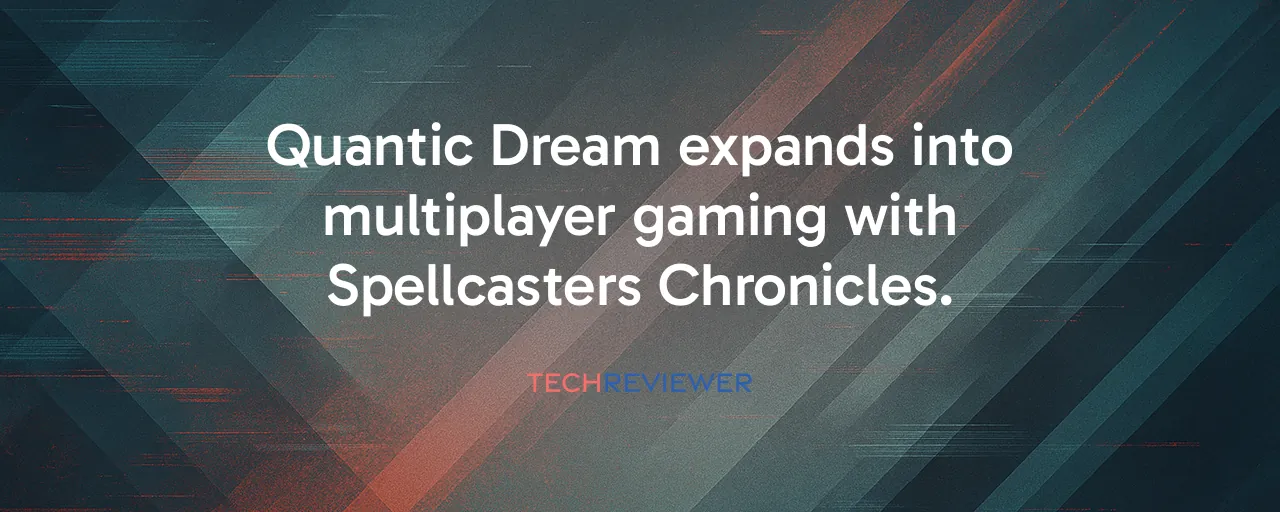A Studio Reinventing Itself
Quantic Dream, the French studio behind cinematic hits like Heavy Rain and Detroit: Become Human, has spent decades perfecting interactive storytelling. Their games pull you into intricate narratives where choices shape the outcome, earning them a loyal following among players who crave emotional depth over twitch reflexes. Now, in a move that surprised many, the studio announced in October 2025 that it's evolving into a multi-project powerhouse, juggling the long-awaited Star Wars Eclipse with a brand-new competitive multiplayer game, Spellcasters Chronicles. This pivot raises a big question: can a studio known for solo experiences thrive in the chaotic world of online gaming?
The shift comes with serious ambition. Quantic Dream has expanded with a new Montreal studio, moved to a bigger Paris headquarters, and built a next-generation game engine to support both projects. After NetEase acquired the studio in 2022 for roughly 100 million euros, they gained the financial muscle to take risks. But diving into multiplayer, a space dominated by giants like Fortnite and Valorant, is a bold gamble for a team with no track record in that arena. Let's unpack what this means for Quantic Dream and its fans.
Star Wars Eclipse: Still on the Horizon
Announced in 2021, Star Wars Eclipse promised a narrative-driven adventure set in the High Republic Era, a period of Jedi prosperity centuries before the Skywalker Saga. Fans have been hungry for details, but updates have been scarce. The game's development has hit bumps, with reports of hiring challenges and the departure of lead writer Adam Williams in 2024. Quantic Dream insists progress continues, but industry timelines suggest a release is likely no sooner than 2027. For Star Wars fans eager to explore the High Republic through interactive storytelling, the wait feels endless.
Despite the delays, Eclipse remains a beacon of Quantic Dream's core strength: crafting branching narratives with cinematic flair. Their proprietary engine, known for stunning visuals and motion capture, will likely deliver a visually rich experience. Yet, the High Republic's niche appeal, tied to novels and comics rather than blockbuster films, might limit its reach compared to mainstream Star Wars titles. Balancing this massive project with a new multiplayer venture adds another layer of complexity to Quantic Dream's workload.
Spellcasters Chronicles: A Risky New Frontier
Spellcasters Chronicles marks Quantic Dream's leap into uncharted territory. This free-to-play, team-based 3v3 action strategy game features arena combat, over 50 spells, and a deck-building system, with matches centered on capturing altars and destroying opponent Lifestones. Set for a closed beta on Steam by late 2025, it's a sharp departure from the studio's photorealistic, story-driven roots, embracing a vibrant fantasy aesthetic instead. With vertical gameplay and summoned Titans, Spellcasters Chronicles sounds intriguing, but breaking into the crowded multiplayer market is no small feat.
The competitive gaming space is brutal. Established titles like League of Legends and Valorant dominate player attention, and new entrants often struggle to gain traction. Quantic Dream's lack of multiplayer experience raises eyebrows, especially with the need for robust netcode, anti-cheat systems, and ongoing content updates. Still, their Montreal studio, now with about 80 employees, brings fresh talent focused on gameplay and level design, signaling a serious commitment to making Spellcasters Chronicles a contender.
Lessons From the Industry's Past
Quantic Dream isn't the first studio to pivot from single-player to multiplayer, and history offers valuable lessons. Take BioWare's Anthem, launched in 2019 by a studio celebrated for narrative RPGs like Mass Effect. The attempt to chase live service trends with a looter shooter flopped spectacularly, plagued by technical issues and a lack of focus, damaging BioWare's reputation. The failure showed how studios risk losing their identity when straying too far from their strengths.
Contrast that with From Software, the creators of Dark Souls and Elden Ring. They wove multiplayer into their single-player formula through optional co-op and invasions, enhancing the experience without abandoning their core vision. Elden Ring sold 25 million copies by 2025, proving single-player games still have massive appeal. Quantic Dream could learn from From Software's restraint, ensuring Spellcasters Chronicles complements rather than overshadows their narrative legacy. With 53% of gamers preferring single-player experiences, according to 2024 research, Quantic Dream's pivot feels like a high-stakes bet.
Balancing Legacy and Ambition
Quantic Dream's dual-project strategy is a tightrope walk. Star Wars Eclipse carries the weight of fan expectations and the Star Wars brand, with Disney and Lucasfilm keeping a close eye on quality. Meanwhile, Spellcasters Chronicles demands constant updates and community engagement to survive in the live service arena. The studio's new engine, designed for both cinematic narratives and fast-paced multiplayer, could create efficiencies, but splitting resources risks stretching their 250-strong team thin.
Fans of Quantic Dream's emotional, choice-driven stories might worry this multiplayer push dilutes what made the studio special. Yet, if Spellcasters Chronicles succeeds, it could expand their audience and stabilize finances, allowing more creative freedom for projects like Eclipse. The Montreal studio's growth and NetEase's backing provide the tools, but execution will decide whether Quantic Dream can redefine itself or stumble in the attempt.
What's Next for Quantic Dream?
The road ahead is full of challenges and possibilities. Spellcasters Chronicles' closed beta in late 2025 will be a critical test, revealing whether Quantic Dream can deliver a multiplayer hit that stands out in a crowded field. For Star Wars Eclipse, fans will likely wait years for a release, but its success hinges on delivering the rich storytelling Quantic Dream is known for. Both projects test the studio's ability to evolve while staying true to its creative roots.
This pivot also reflects broader industry tensions. With single-player hits like Black Myth Wukong selling 20 million copies, the appetite for narrative experiences remains strong. Quantic Dream's gamble on multiplayer could diversify their portfolio or spread them too thin. As they navigate this bold new chapter, their ability to balance innovation with their storytelling legacy will shape their place in gaming's future.
